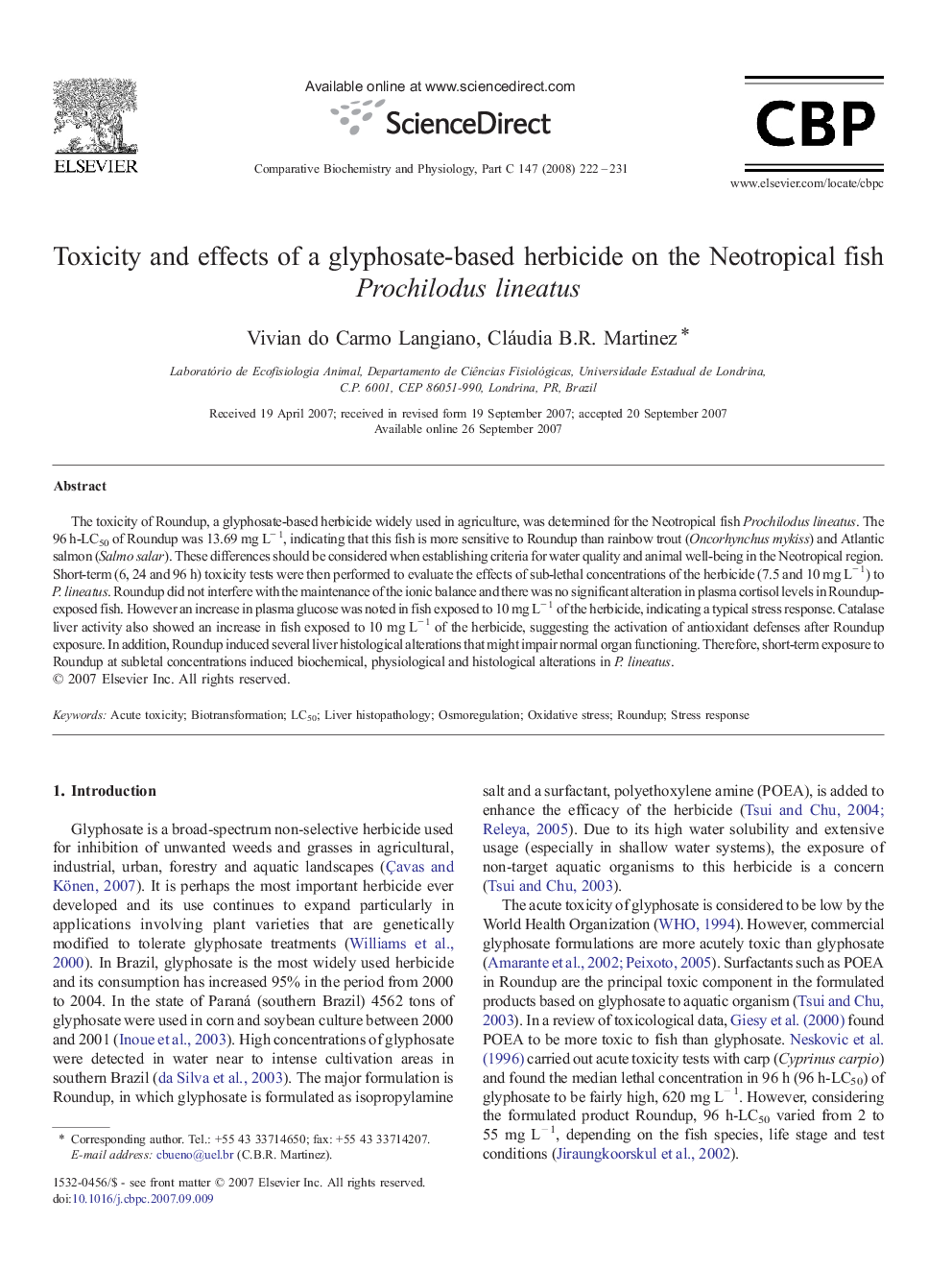| Article ID | Journal | Published Year | Pages | File Type |
|---|---|---|---|---|
| 1977846 | Comparative Biochemistry and Physiology Part C: Toxicology & Pharmacology | 2008 | 10 Pages |
The toxicity of Roundup, a glyphosate-based herbicide widely used in agriculture, was determined for the Neotropical fish Prochilodus lineatus. The 96 h-LC50 of Roundup was 13.69 mg L− 1, indicating that this fish is more sensitive to Roundup than rainbow trout (Oncorhynchus mykiss) and Atlantic salmon (Salmo salar). These differences should be considered when establishing criteria for water quality and animal well-being in the Neotropical region. Short-term (6, 24 and 96 h) toxicity tests were then performed to evaluate the effects of sub-lethal concentrations of the herbicide (7.5 and 10 mg L− 1) to P. lineatus. Roundup did not interfere with the maintenance of the ionic balance and there was no significant alteration in plasma cortisol levels in Roundup-exposed fish. However an increase in plasma glucose was noted in fish exposed to 10 mg L− 1 of the herbicide, indicating a typical stress response. Catalase liver activity also showed an increase in fish exposed to 10 mg L− 1 of the herbicide, suggesting the activation of antioxidant defenses after Roundup exposure. In addition, Roundup induced several liver histological alterations that might impair normal organ functioning. Therefore, short-term exposure to Roundup at subletal concentrations induced biochemical, physiological and histological alterations in P. lineatus.
